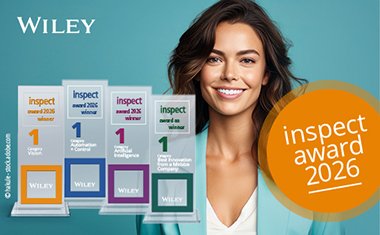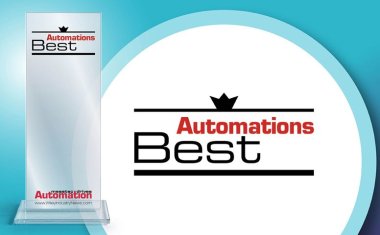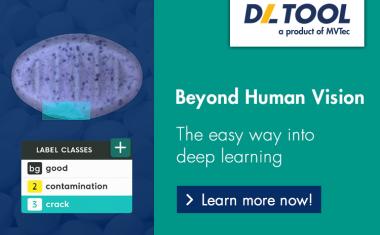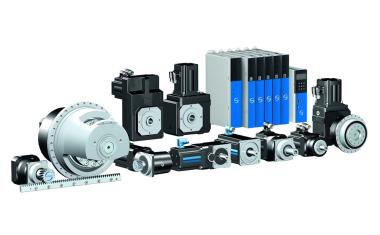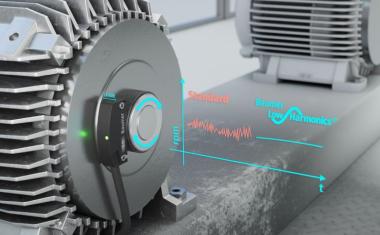Global experts gather to advance laser-based manufacturing for e-mobility
Review: LaserEMobility Workshop 2024, 17 – 18 July 2024, Garching near Munich, Germany.
The LaserEMobility Workshop 2024, an international event of innovation in the e-mobility sector, marks a milestone in its journey advancing laser processes. LaserEMobility was established in 2020 as a section of the Italian Manufacturing Association (AITeM). Its main event, the LaserEMobility Workshop, is a collaborative event organized by the University of Bologna, Politecnico di Milano and the Technical University of Munich. After the University of Bologna inaugurated the first edition in 2022 and Politecnico di Milano hosted the second in 2023, this year’s awaited event took place at TUM. The event, which is dedicated to research, development and collaborative activities in relation to advanced laser processes in e-mobility, highlighted the growing interest of an international community.
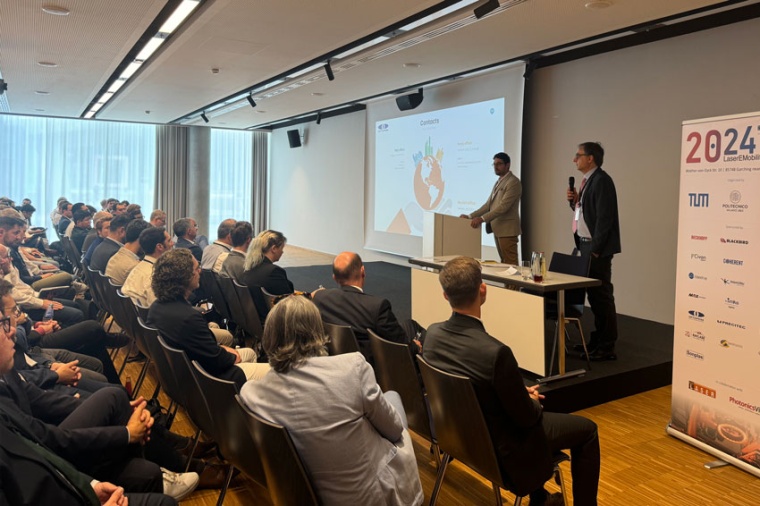
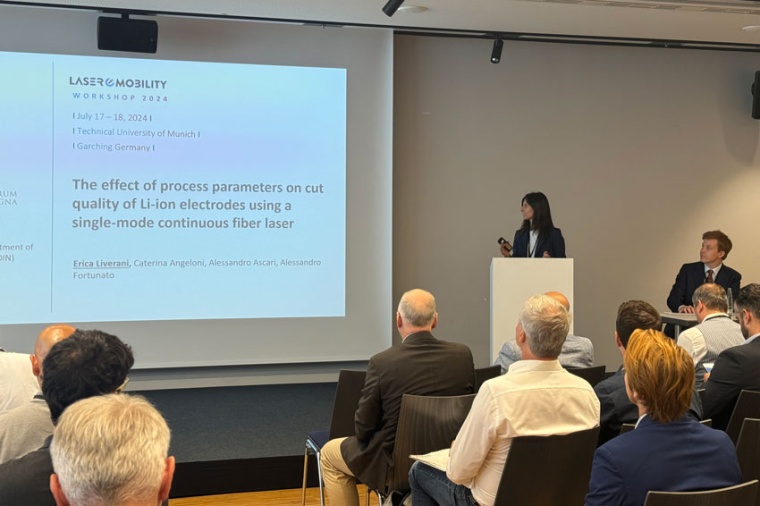
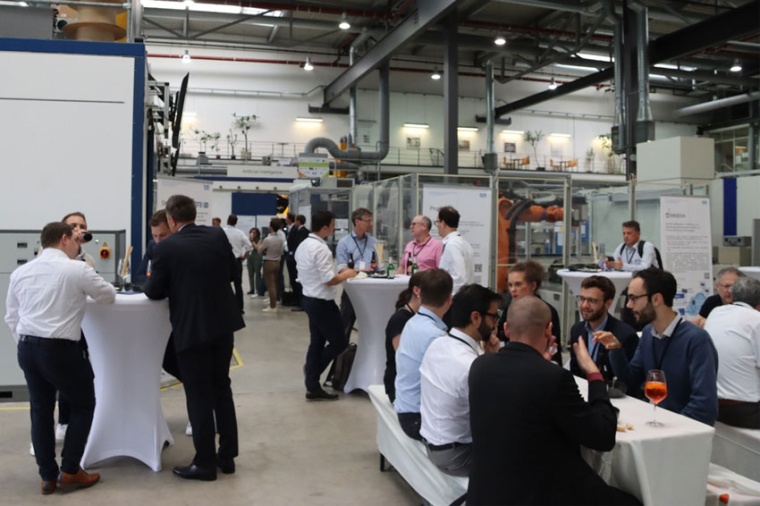
Approximately 200 registration requests, supported by 20 sponsors from leading companies in the laser-based manufacturing industry enabled a two-day workshop for 157 participants, making the event a center for cutting-edge innovation and knowledge sharing. The program included 22 industry presentations, showcasing the advancements in practical applications, alongside 16 academic presentations that delved into the latest insights of research. Additionally, a poster session was present for the attendees, offering a platform for discussions. Overall, the environment fostered a vibrant exchange of ideas between leading industry representatives and academic experts, highlighting the commitment to driving the further development of electromobility through laser technologies.
The presentations addressed application-oriented topics over the whole field of laser material processing for electromobility, including battery systems, electric drivetrain, fuel-cells, lightweight construction, process modelling, and diagnostics for e-mobility applications. While laser welding applications remained a focal point, laser cutting, structuring and additive manufacturing in the field of electromobility also received increased attention. Beam shaping across space and time, as well as different laser wavelengths, were presented to the audience, emphasizing the possibility to handle more complex material systems with heightened productivity demands. To ensure efficient material utilization and high-quality standards, many industrial companies have focused on the integration of inline monitoring solutions. Furthermore, methodological studies, modelling and simulations were a central topic, determining the optimal beam-material combinations. The LaserEMobility Workshop played a key role in gathering professionals and researchers to showcase and openly discuss technologies, as clearly demonstrated at this year’s event.
Professor Michael Zäh from the Technical University of Munich opened the event on the first day. In his welcome speech, he emphasized the role of laser technology as a production tool in the field of batteries, describing them as the Eldorado for the laser. Regarding the workshop schedule, the first section was dedicated to the industrial presentations. Several professionals from the industry showcased prospects related to lasers as integrated digital tools for e-mobility divided into three sessions. At the beginning, Daniel Lück (IPG), Gwenn Pallier (Cailabs), and Thomas Hofmeister (Coherent) spoke about laser welding and process monitoring for e-mobility, chaired by Prof Michael F. Zäh. Followed by the presentations of Matthias Beranek (Trumpf), Lukas Mayr (Maxphotonics), Alessio Califano (nLight), and Christian Dini (Luxinar), who gave perspectives about laser beam shaping and the digitalization of the overall process, chaired by Prof Ali Gökhan Demir from the Politecnico di Milano.
During the lunch break, attendees had the opportunity to view posters presented by academia, meet and network with peers, and visit various industry booths to explore the latest laser technologies. After the break, speeches from Tugay Kurtay (Optoprim), Richard Hendel and Johannes Schäfer (Laserline), Richard Steinbrecht (Lessmüller), and Robert Bernhard (Civan), chaired by Prof Alessandro Fortunato from the University of Bologna, complemented the industrial sessions for the day. Professor Fortunato then took the stage briefly to present ‘Lasers for accelerated Net Zero Transition’, a project funded by the European Union, focused on advanced process simulations and artificial intelligence for quality control.
In the afternoon, the academic presentations were held, which were divided into two parallel sessions for participants to choose from. The first session portrayed the different prospects about temporal and spatial beam shaping and was chaired by Dr Leonardo Caprio from the Politecnico di Milano. Talks from Erica Liverani (University of Bologna), Francesco Galbusera (Politecnico di Milano), Sharhid Jabar (University of Warwick), and Atharv Agarwal (LUT University) addressed the challenges and opportunities in laser beam shaping for improved process quality.
The second contemporary academic session highlighted laser-based efficient manufacturing with presentations from Christian Hagenlocher (University of Stuttgart), Max Biegler (Fraunhofer IPK), Hans-Georg von Ribbeck (F&K Delvotec Bondtechnik), and Murat Reis (Bursa Uludağ University), chaired by Siegfried Bähr from TUM. The day was concluded with a guided tour of the Institute for Machine Tools and Industrial Management of the faculty of mechanical engineering at the Technical University of Munich, where the guests had the opportunity to discover the various innovative laser processes being researched at the institute. In addition, a joint dinner with drinks created a pleasant atmosphere in which the participants were able to exchange ideas.
Professor Demir from the Politecnico di Milano started the second day by welcoming and greeting the attendees. He presented the statistics from this year’s event, highlighting the significant number of attendees and the broad spectrum of industries and academics. He stressed the essential need for communicating and networking to address the current and future challenges of e-mobility demand and emphasized what the future holds in terms of digitalization of the processes, solid-state batteries, and sustainable manufacturing in the EV sector. In addition, he announced the accession of the University of Erlangen-Nuremberg to the LaserEMobility section of the AITeM, represented by Prof Michael Schmidt.
Afterwards, the industry sessions continued with lasers for electrification in the automotive sector. At the beginning of the second workshop day, Georgij Safronov (BMW), Karsten Schätzle (Beckhoff), Giulio Borzoni (IMA Automation), and Jan Bernd Habedank (Raylase) had the floor under the chairmanship of Prof Demir. The presenters demonstrated AI approaches for process monitoring of laser welding, as well as automatic focus adjustments and PC-based control technologies. This was followed by presentations about quality assurance for the use of lasers by Luca Schmerbeck (Sonplas), Maximilian Schmöller (S&B Automotive Engineering), Michele Serri (Manz) and Erica Librera (Prima Additive), moderated by Dr Dominic Bartels from the University of Erlangen-Nürnberg.
After the lunch break, the last session for industrial applications took place, chaired by Prof Alessandro Ascari from the University of Bologna. Lasers for the electrification in automotive was discussed among the professionals. Nicolas Meunier (MKS Instruments), Florian Hermann (Precitec), and Benjamin Bopp (Blackbird) illustrated advanced sensors and camera systems for enhanced production.
After a short coffee break, a second round of academic presentations took place, led by Dr Erica Liverani from the University of Bologna and Siegfried Bähr from TUM. Pawel Garkusha (TUM), Dario Basile (Politecnico di Torino), Markus Hofele (Aalen University), and Isaac Kuma Yeboah (Pentecost University) presented their research work on process diagnostics, monitoring, and control from one end, while Klaus Schricker (TU Ilmenau), Dominic Bartels (FAU Erlangen-Nürnberg), Carlo Alberto Biffi (National Research Council of Italy ICMATE) and Caterina Angeloni (University of Bologna) talked about process fundamentals and modeling, also covering dissimilar materials processing and X-ray imaging keyhole description, from the other end.
Both Professors Demir and Zäh closed the event, thanking all for their presence, as well as the event organizers, sponsors, and media partners. In order to ensure continuity and further enhancement of the conference experience, and since a high level of satisfaction amongst the attendees was present, the event will be organized in the same format in 2025.
Overall, the event drew speakers from seven different countries. Numerous presenting companies emphasized the industry’s demand for skilled professionals, highlighting the significance of networking events like the LaserEMobility Workshop for the exchange of ideas and the transfer of knowledge as well as the transition of new concepts and professionals from academia to industry. With attendees coming from 16 different countries, the organized event successfully facilitated an international exchange of expertise. The time set aside for breaks throughout the event allowed participants to visit exhibition booths and explore the latest trends in laser system technology. Additionally, this time provided opportunities for networking and discussions on the presented scientific and technical results.
With the conclusion of the LaserEMobility Workshop 2024, the engaged audience is already anticipating the next edition in the year 2025. The LaserEMobility Workshop will always be a stage for networking and knowledge enhancement in laser-based manufacturing for the electric mobility industry. The workshop will continue to serve as an important platform where industry experts, researchers, and innovators come together to share insights, discuss advancements, and shape the future of electric mobility together.
The workshop program and the abstract book can be accessed following the link LaserEMobility Workshop.
Company
Technical University of MunichArcisstraße 21
80333 Munich
Germany
most read
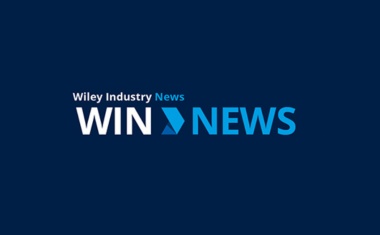
Hexagon plans spin-off
Hexagon plans to spin off its Asset Lifecycle Intelligence and Safety, Infrastructure & Geospatial divisions into a new company called Octave.
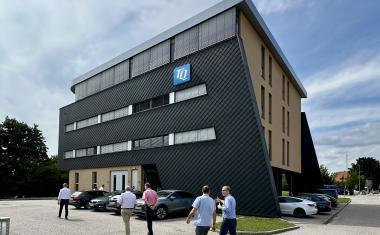
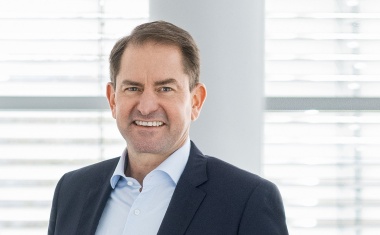
Lenze Group reorganizes its Executive Board and focuses on transformation
As part of the reorganization, Dr.-Ing. Claus Bischoff (CTO) left the company in April and Dr. Achim Degner (CFO) in July.
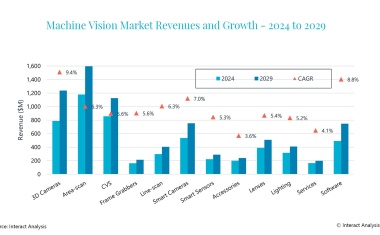
Growth in machine vision thanks to AI software
The global machine vision market recorded revenues of $5.6 billion in 2024, representing a decline of 3.9% compared to 2023.
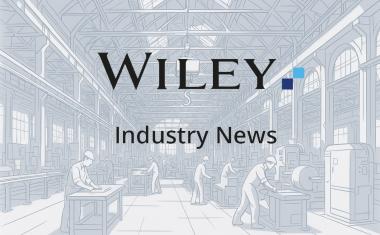
Softbank acquires ABB's robotics business
The Softbank Group has reached a definitive agreement to acquire ABB's robotics business.


